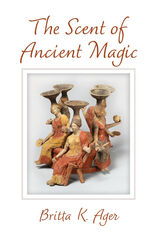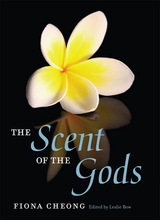
The Scent of Ancient Magic explores the complex interconnection of scent and magic in the Greco-Roman world between 800 BCE and CE 600, drawing on ancient literature and the modern study of the senses to examine the sensory depth and richness of ancient magic. Author Britta K. Ager looks at how ancient magicians used scents as part of their spells, to put themselves in the right mindset for an encounter with a god or to attack their enemies through scent. Ager also examines the magicians who appear in ancient fiction, like Medea and Circe, and the more metaphorical ways in which their spells are confused with perfumes and herbs. This book brings together recent scholarship on ancient magic from classical studies and on scent from the interdisciplinary field of sensory studies in order to examine how practicing ancient magicians used scents for ritual purposes, how scent and magic were conceptually related in ancient literature and culture, and how the assumption that strong scents convey powerful effects of various sorts was also found in related areas like ancient medical practices and normative religious ritual.


While we often approach gardens as things to be seen—thus engaging the rational, intellectual part of the human brain—Sound and Scent in the Garden explores the more elusive experiences of sound and smell. These senses are important dimensions of garden design and performance and often have a powerful effect on the human body, yet they may also be ephemeral and difficult to study.
The contributors to the volume explore the sensory experience of gardens specifically as places where people encounter landscape in a staged manner, as a result of intentional design. How do the senses shape the experience of those places? In what ways are plants, gardens, and landscapes produced so as to stimulate the senses? What evidence do we have of historical sensory experiences? What is lost when we forget to acknowledge the sensory environment of the past or simply overlook its traces?
The volume demonstrates a wide variety of approaches to apply to the study of sensory history and illuminates this important dimension of the experience of gardens—past and present, East and West.
READERS
Browse our collection.
PUBLISHERS
See BiblioVault's publisher services.
STUDENT SERVICES
Files for college accessibility offices.
UChicago Accessibility Resources
home | accessibility | search | about | contact us
BiblioVault ® 2001 - 2024
The University of Chicago Press









